
Wechat/Whatsapp:
+8613798883773

Wechat/Whatsapp:
+8613798883773

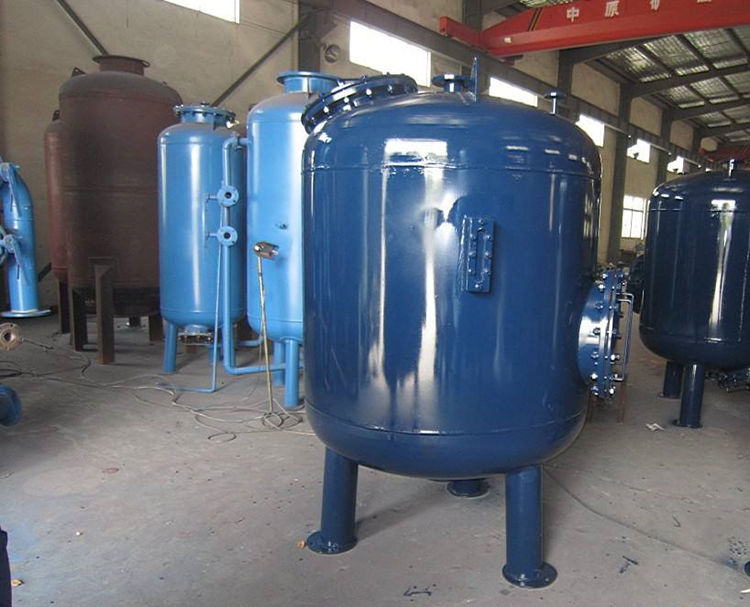


Ion exchange water purification system
When industrial companies require ion exchange technology, one of the first questions we typically hear is, “How much does an ion exchange water treatment system cost?”
This can be difficult—but not impossible—to narrow down because of all the factors that can go into engineering and putting together a system to meet the facility’s needs.
The main factors of ion exchange water purification system
All in all, there are four main factors that drive fluctuation in the cost of an ion exchange treatment system:
·What are the system’s flow-rate requirements going to be, or what amount of water do you need to process per day and how fast?
·What is the quality of the water coming into the facility and what level of contamination is desirable?
·What is the ion (and general) chemistry of the stream?
·What construction materials are required?
·If you can answer these questions, it will help you narrow down what your needs might be and provide a better sense of the budget you might be looking at.
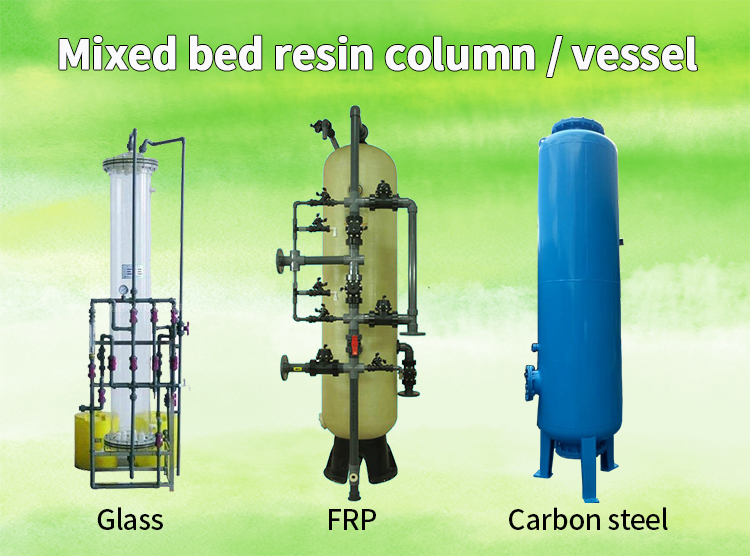
Flow rates
·In general, if your plant runs consistently at a lower flow rate, you’re usually looking at a lower capital cost for your ion exchange system. If your plant generally runs a greater flow in a shorter amount of time, your capital cost is usually higher for equipment.
·Flow rates are always factored into the system cost, so be sure you measure this as efficiently as possible prior to requesting a quote in order to get an accurate cost estimate for your system.
How many solids need to be removed?
The amount of dissolved solids the facility needs to take out per gallon of water (usually measured in parts per million) is an important factor that goes into planning an ion exchange system, because the higher the volume of contaminants, the bigger the ion exchange vessels have to be to handle them.
Water and ion chemistry
Along with the volume of ions that need to be removed, it’s important to know the chemistry of the ions:
·What ions are there and in what ratios?
·How many suspended solids and total dissolved solids (TDS) are there?
·What is the makeup of that TDS?
·How much hardness, chloride, sodium, silicia?
·What are the other ions in the water?
This will affect the type of equipment you have and how many vessels and what is in those vessels in terms of resin. For example, ion exchange is sometimes used to separate valuable minerals, such as gold, silver, uranium, etc., and how the resins are charged will affect how efficient they will be in removing these minerals.
Product detail of Ion exchange water purification system
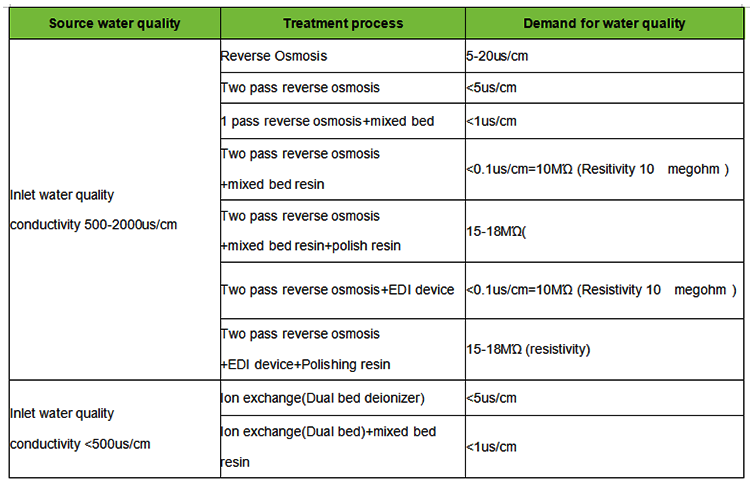
According to customers' water source analysis report and the final water standard required ,we will suggest customer to choose the suitable ion exchange water purification system.
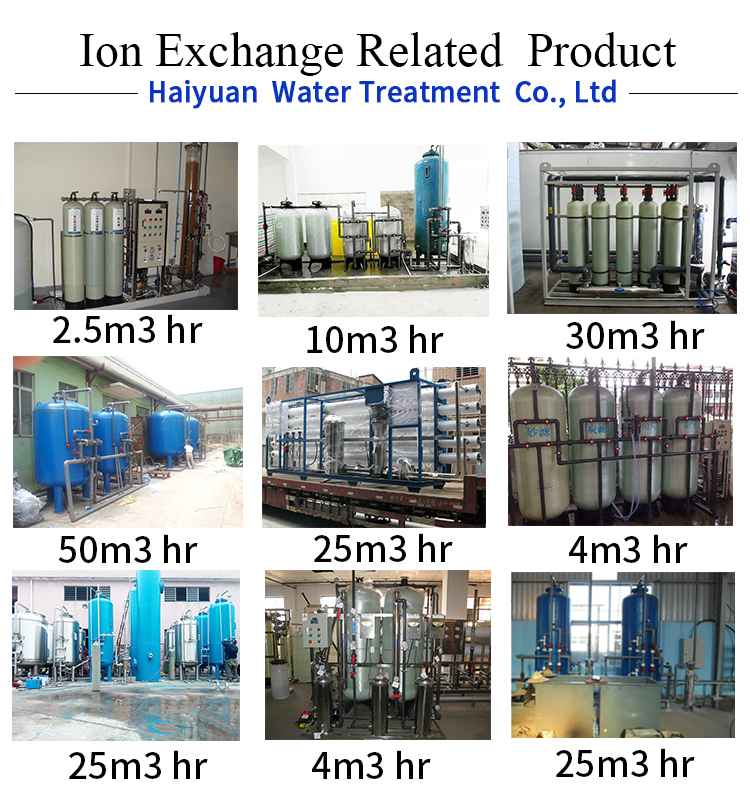
Ion exchange water purification
Depending on your effluent range requirements and individual purification needs, Haiyuan’s twin bed ion exchange system could be an ideal solution. Although our mixed bed deionization provides higher purity water, our twin bed exchangers deliver similar results without corrosion to copper, aluminum, and stainless steel. Haiyuan’s high-capacity twin bed exchangers are made up of strong cation and anion resins in a dual bed configuration, ensuring consistent quality and performance.
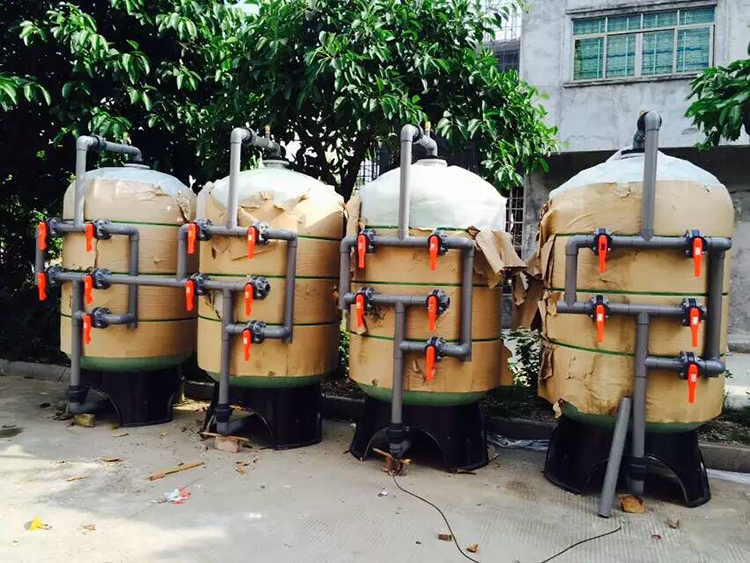
Theory of Technology Basic Principles of ion exchange purification
Ion exchange resin is an insoluble, porous, polymer bead. The beads have a very high molecular weight and carry a functional group with either positive (+) or negative (-) charge, known as exchange sites. Negatively charged resin is called cation resin and attracts positive ions, or cations. Positively charged resin is called anion resin and attracts negative ions, or anions. They can be further classified as weak and strong acid cation resins and weak and strong base anion resins. The porosity of the bead allows water to flow through the bead, increasing the amount of contact with the exchange sites.
Please add Wechat/Whatapp +8613544774483 or +86 13922972795.
Or send Email: sales@seawaterroplants.com
